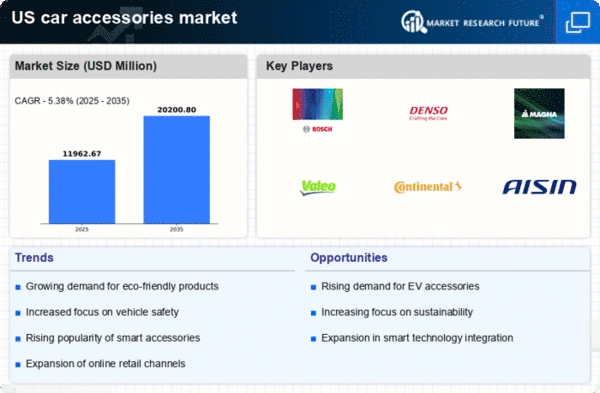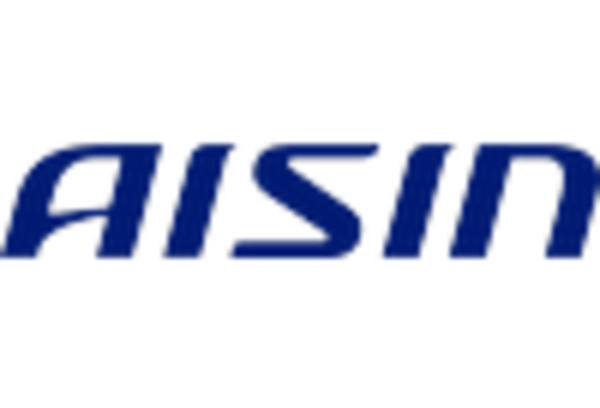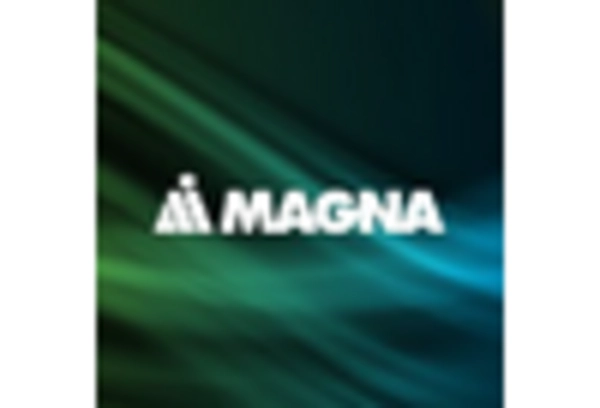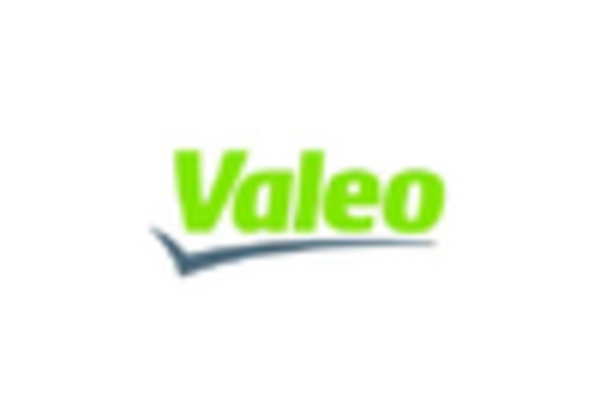Rising Vehicle Ownership
The increasing rate of vehicle ownership in the US appears to be a primary driver for the car accessories market. As more individuals acquire vehicles, the demand for accessories such as floor mats, seat covers, and infotainment systems is likely to rise. According to recent data, vehicle ownership in the US has reached approximately 270 million, indicating a robust market potential. This trend suggests that as the number of vehicles on the road grows, so too does the opportunity for accessory sales. Furthermore, the car accessories market may benefit from the growing trend of consumers seeking to enhance their driving experience through various add-ons, thereby driving revenue growth in this sector.
Impact of Regulatory Changes
Regulatory changes in the automotive sector are shaping the car accessories market, as new standards and guidelines emerge. For instance, regulations regarding emissions and fuel efficiency are prompting manufacturers to develop accessories that align with these requirements. The car accessories market may experience growth as consumers seek compliant products that enhance vehicle performance while adhering to legal standards. Additionally, the push for environmentally friendly accessories could lead to increased demand for sustainable materials and technologies. This evolving regulatory landscape suggests that manufacturers must remain agile and responsive to changes, potentially creating new opportunities within the market.
Evolving Consumer Preferences
Consumer preferences in the US are shifting towards more personalized and functional vehicle accessories, which significantly impacts the car accessories market. As individuals increasingly seek products that reflect their personal style and enhance comfort, manufacturers are responding with innovative designs and features. For instance, the demand for tech-savvy accessories, such as smartphone mounts and advanced audio systems, has surged. Market data indicates that the segment for electronic accessories is projected to grow by 15% annually. This evolution in consumer preferences suggests that the car accessories market must adapt to meet the changing needs of consumers, potentially leading to increased sales and market expansion.
Growth of E-commerce Platforms
The rise of e-commerce platforms in the US is transforming the car accessories market, providing consumers with unprecedented access to a wide range of products. Online shopping has become increasingly popular, with over 70% of consumers preferring to purchase accessories online due to convenience and competitive pricing. This shift is likely to drive sales in the car accessories market, as consumers can easily compare products and read reviews before making a purchase. Additionally, e-commerce allows for niche products to reach a broader audience, which may further stimulate market growth. The car accessories market must leverage this trend by enhancing online visibility and optimizing the customer shopping experience.
Increased Focus on Safety Features
The heightened emphasis on vehicle safety in the US is influencing the car accessories market, as consumers prioritize products that enhance safety and security. Accessories such as dash cams, blind-spot monitors, and advanced parking sensors are gaining traction among safety-conscious drivers. Recent statistics indicate that the market for safety-related accessories is expected to grow by 20% over the next five years. This trend suggests that the car accessories market could see a significant uptick in demand as consumers invest in products that provide peace of mind while driving. Manufacturers may need to innovate continuously to meet the evolving safety standards and consumer expectations.
















